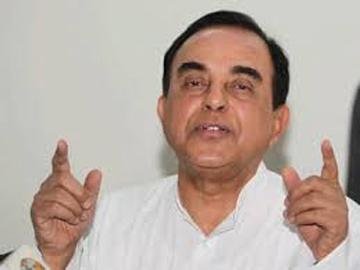Subramanian Swamy seeks President’s Rule in Tamil Nadu

New Delhi: BJP Parliamentarian Subramanian Swamy on Friday urged Union Home Minister Rajnath Singh to impose President's Rule in Tamil Nadu following the prolonged hospitalisation of Chief Minister J. Jayalalithaa and her remaining incommunicado.
Swamy also sought the Armed Forces (Special Powers) Act be imposed in the state since "sleeper cells of the IS have become active in the districts of Ramanathapuram, Tirunveli, Madurai and Kanyakumari", and "disruptive groups" such as Dravida Kazhagam, leftover LTTE, and Naxalites "are out to create an upheaval".
"I urge Home Minister Rajnath Singh to invoke Article 356 of the Constitution and put the Legislative Assembly in suspended animation till Jayalalithaa is able to attend office," Swamy said a press statement.
According to him, the step should be taken in view of the administrative disarray in the state following the indefinite hospitalisation of the Chief Minister and her having to remain incommunicado for health reasons.
"A retired Chief Secretary has been allowed to conduct the business of the state," Swamy added.
In this ad hoc administrative situation, he pointed out, the sleeper cells of the ISIS have become active in the districts of Ramanathapuram, Tirunveli, Madurai and Kanyakumari.
Besides, "a collaborative and supportive action by Dravida Kazhagam, leftover LTTE, and disruptive groups such as underground Naxalites are out to create an upheaval in the state causing a massive disorder and lawlessness", added the statement.
In view of this situation, Swamy sought imposition of the Armed Forces (Special Powers) Act (AFSPA) in all the southern districts as well as Chennai for a period of six months.
The 68-year-old Jayalalithaa was admitted to Apollo Hospitals on September 22 for fever and dehydration.
IANS




